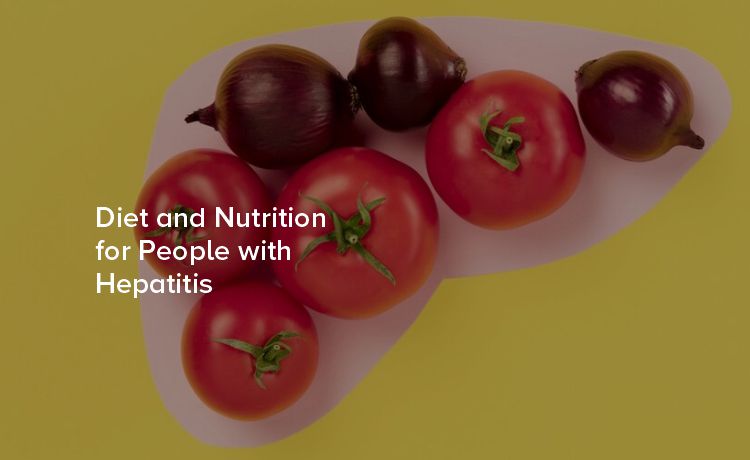
Living with hepatitis requires more than just medical treatment. Your diet plays a crucial role in managing the condition and enhancing your overall well-being.
Hepatitis is a liver disease that can cause inflammation and damage to liver cells. It can be caused by viruses, alcohol abuse, or certain medications. Regardless of the cause, your liver plays a vital role in detoxifying your body, producing essential proteins, and aiding digestion.
When the liver is inflamed or damaged, its ability to perform these functions is compromised. This is why maintaining a healthy diet is essential for supporting liver function and managing hepatitis effectively.
Nutrition is a powerful tool in managing hepatitis. A balanced diet can help reduce liver inflammation, repair liver cells, and boost your immune system. It can also prevent complications such as cirrhosis and liver cancer.
Eating the right foods ensures that you get the necessary nutrients to support liver health. It also helps maintain a healthy weight, which is crucial because obesity can exacerbate liver damage.
Protein
Protein is essential for repairing liver cells and producing enzymes that aid in digestion. Include lean sources of protein in your diet, such as chicken, fish, eggs, and legumes. Aim for a moderate intake to avoid overloading your liver.
Vitamins and Minerals
Vitamins and minerals play a vital role in liver function. Vitamin C and E, for example, are antioxidants that protect liver cells from damage. B vitamins support energy production and metabolism. Include a variety of fruits, vegetables, and whole grains in your diet to ensure you get a broad spectrum of nutrients.
Healthy Fats
Healthy fats, such as those found in avocados, nuts, seeds, and olive oil, support liver health. They reduce inflammation and provide energy. Avoid trans fats and saturated fats, which can contribute to liver damage.
Alcohol
Alcohol is the most significant risk factor for liver damage. It can accelerate the progression of hepatitis and lead to cirrhosis. If you have hepatitis, it's best to avoid alcohol entirely.
Processed Foods
Processed foods often contain unhealthy fats, added sugars, and preservatives that can harm the liver. Opt for whole, unprocessed foods whenever possible. Fresh fruits, vegetables, and whole grains are excellent choices.
High-Sodium Foods
Excessive sodium can lead to fluid retention and swelling, making it harder for the liver to function correctly. Limit your intake of salty snacks, canned soups, and processed meats. Use herbs and spices to flavor your food instead.
Breakfast Ideas
Start your day with a nutritious breakfast that supports liver health. Try oatmeal topped with fresh berries and a sprinkle of nuts or a smoothie made with spinach, banana, and almond milk.
Lunch Options
For lunch, opt for a salad with leafy greens, grilled chicken, and a variety of colorful vegetables. Add a drizzle of olive oil and lemon juice for a healthy dressing. Lentil soup or a quinoa bowl with roasted vegetables are also great options.
Dinner Choices
Dinner can be both delicious and liver friendly. Consider baked salmon with a side of steamed broccoli and brown rice. Another option is a stir-fry made with tofu, bell peppers, and snap peas, served over whole-grain noodles.
Staying hydrated is crucial for liver function. Water helps flush toxins out of the body and supports overall health. Aim to drink at least 8 glasses of water a day. Herbal teas and fresh fruit-infused water can also be refreshing alternatives.
Eating regular meals helps stabilize blood sugar levels and provides a steady supply of nutrients to the liver. Aim for three balanced meals a day and incorporate healthy snacks if needed. Avoid skipping meals, as this can strain the liver.
Slow Down and Savor
Taking the time to eat slowly and savor your food can aid digestion and reduce stress on the liver. Chew your food thoroughly and enjoy each bite.
Listen to Your Body
Pay attention to your body's hunger and fullness cues. Eating when you're hungry and stopping when you're satisfied can help maintain a healthy weight and prevent overeating.
Reduce Stress
Stress can negatively impact liver health. Incorporate stress-reducing practices into your daily routine, such as mindfulness meditation, yoga, or deep breathing exercises.
Milk Thistle
Milk thistle is a popular herbal supplement known for its liver-protective properties. It contains silymarin, which has antioxidant and anti-inflammatory effects. Consult your healthcare provider before adding any supplements to your regimen.
Vitamin D
Vitamin D deficiency is common in people with liver disease. Ensure you're getting enough vitamin D through sunlight exposure or supplements, as advised by your doctor.
Omega-3 Fatty Acids
Omega-3 fatty acids, found in fish oil supplements, can reduce inflammation and support liver health. Incorporate fatty fish like salmon and mackerel into your diet or consider a high-quality supplement.
Staying Active for Liver Health
Regular physical activity is beneficial for overall health and can support liver function. Aim for at least 30 minutes of moderate exercise most days of the week. Activities like walking, swimming, and cycling are excellent choices.
Monitoring Your Progress
Keep track of your dietary habits and how they affect your liver health. Regular check-ups with your healthcare provider can help monitor your liver function and make necessary adjustments to your diet and lifestyle.
Managing hepatitis through diet and nutrition is a powerful way to support your liver and overall health. By incorporating the right nutrients, avoiding harmful substances, and adopting healthy eating practices, you can take charge of your well-being. Book an appointment with the best gastro doctor, available at Citizens Specialty Hospital, Hyderabad.